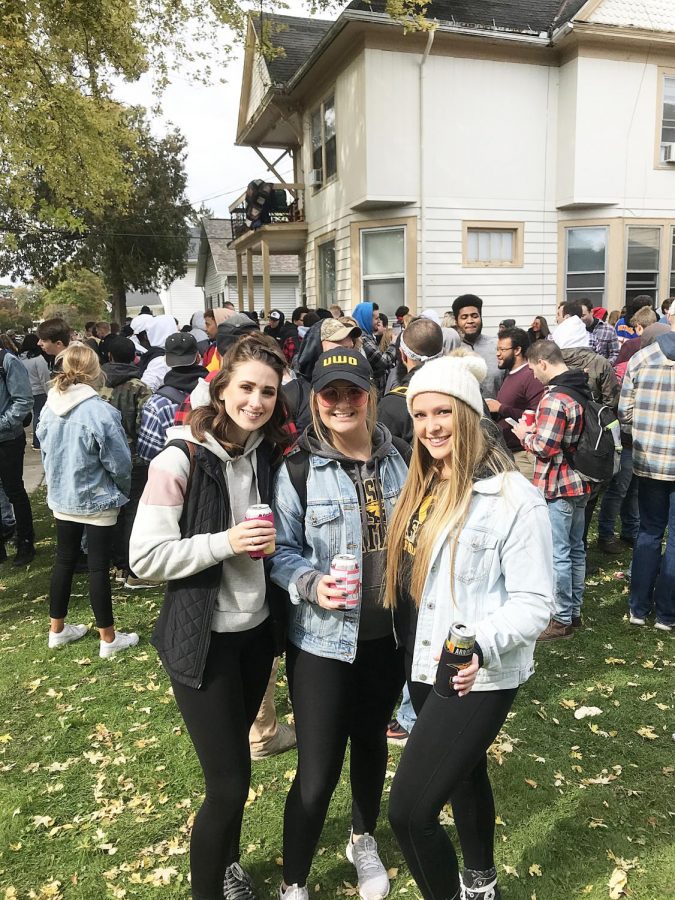The Oshkosh Student Association announced Austyn Booth-Anderson and Maria Berge will be the next OSA president and vice president for the 2016-2017 school year. This changing of the guard presents an opportunity for OSA to examine the way in which it governs itself and if those practices enable it to best serve the student body. The current election and organization bylaws set in place by the student government are ambiguous and it is the responsibility of the current staff to ensure there is transparency and clarity to the student body. Many of the bylaws are worded so they are led to open interpretations. In fact, the election bylaws are supposed to be interpreted by the six-member elections commission that decides whether or not to take away votes from students toward a select candidate based on election violations. Another bylaw is set in place to have the OSA president act in role of the elections commissioner, or head of the elections commission, in the event that no one is essentially interested. Current OSA president Jordan Schettle appointed himself as elections commissioner for the 2016-2017 elections. While it is great to have a member of OSA who is knowledgeable of every bylaw, it is also confusing when the bylaws state the president can remove the elections commissioner. The OSA posse also sets the precedent of inter-office dating. Schettle announced to OSA adviser Petra Roter he was dating candidate Boothe-Anderson, the current speaker of assembly. While its definitely OK to find love where you find it, its not a topic addressed in any bylaws to be protective of perceived ethical violations. Maybe we dont have a basic understanding of the bylaws set in place, which Schettle said in an interview with an A-T staff member, but it does come across as out-of-place with ethicists, students and assembly members. The Director of the Media Law Center for Ethics & Access at Kent State University Janet Leach said while dating a candidate doesnt constitute a conflict of interest, it certainly has the potential to be one and doesnt bode well for the student government. Even a perception of a conflict of interest doesnt look good for a student governmental organization, Leach said. Roter made it clear that Schettle does not have the overall say on any of the votes the elections commission made, but in the event of a tie, Schettle would make the decision. Although, the way the process is set up, he really is not in a position where he votes, Roter said. If he were put in a position where he had to vote he would need to recuse himself. He was fully on board with that and expected to do that on his own accord. Yet, Roter had discussed the possibility of ethical issues surrounding the idea of the current president dating a candidate. I know that there were issues with the perceptual side of it, and that pretty much came from other individuals looking at the situation not fully understanding what the process entails and making the assumption that he was the sole individual that makes all decisions and not understanding that the process has its checks and balances, Roter said. Roter is referring to the section of the elections bylaws that states the commissioner is in charge of interpreting the bylaws, including the campaign rules and elections violations. The commission must then take issue with the commissioners interpretation for any checking to happen. Its a never-ending circle that excludes the rest of the student body. The imbalances of this student government system is left for questioning from the University. Chancellor Andrew Leavitt was not made aware Boothe-Anderson was a candidate, but knew that Schettle and Boothe-Anderson were a couple. Leavitt said if Schettle was acting within the bylaws, then the relationship is fine, but there is no protocol to address this issue. If someone as high up as the Chancellor seems unaware of what is happening at the student government level, its very possible OSA may be getting away with more than they should be. Its Schettles job as OSA president and someone who is planning to attend law school after graduation to recuse himself from any situations that can be awkward or seen as an ethical issue. When asked if Schettle saw the relationship as an ethical issue, he said, Nope. Student Ben Lenerz said if Schettle could have influenced the vote in any way, its not OK for him to be the elections commissioner. It doesnt make sense why that would be allowed or why theres not a third party, Lenerz said. You wonder if the relationship has something to do with the election. It seems like OSA is run by a tight-knit group that doesnt want to allow anyone else in. OSA clearly needs a reform in their bylaws, those who run it and even the way they include students. The organization has been working endlessly to get more students involved in student government. However, the elections commission is in place to take away student votes based on violations. In this years elections, 46 percent of the votes were taken away from a slate of candidates due to outdated violations. Even though only roughly three percent of the student body voted in the 2016-2017 elections, the fact the commission voted to take away 46 percent seems like a form of censorship. OSA is supposed to represent the voice of the students and its members have the responsibility of ensuring its internal governing practices dont prevent it from doing so. The ambiguity of the current election bylaws leaves room for perceived ethical problems to turn into actual ones. Its time for a reform and its time for a change in leadership of our student government.
Categories:
OSA election bylaws need updating
April 13, 2016
0






